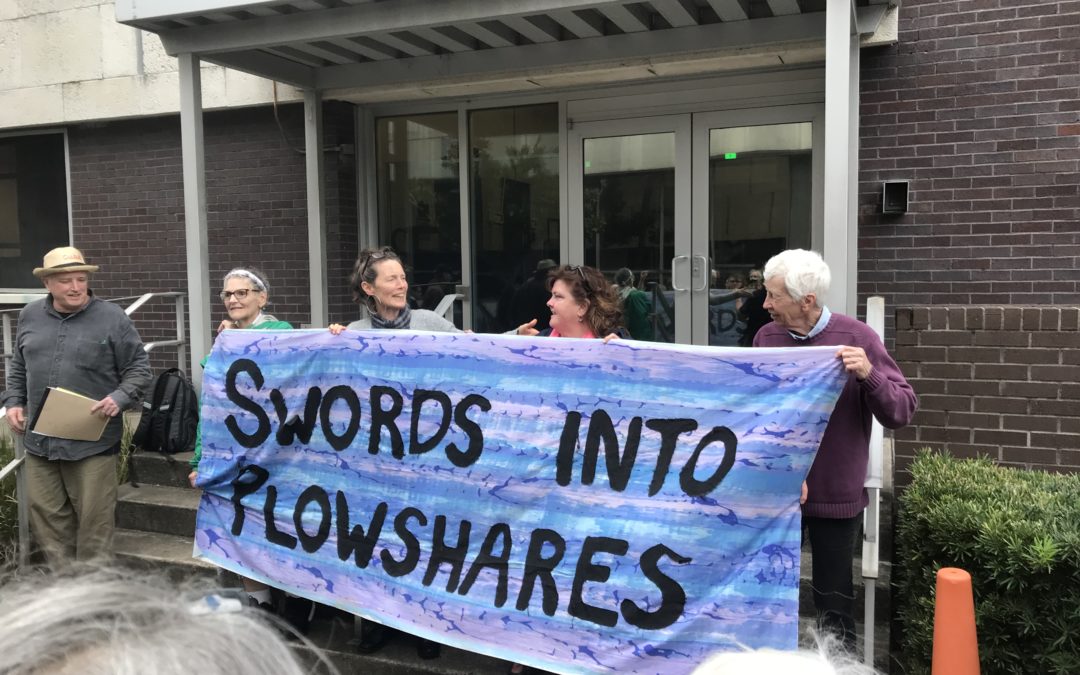By Vaughn Golden
On April 4, 2018, seven activists, devout Catholic Workers, following a calling of their faith to symbolically disarm nuclear weapons, broke into the Kings Bay naval base in southern Georgia. Nearly 19 months later, they were pronounced guilty by a jury in U.S. District Court on charges of conspiracy, trespassing and depredation of property.
They rejoiced. It started down the hall in an anteroom, setup to handle the overflow of supporters coming from across the country to watch the Kings Bay plowshares seven defend themselves in court, as many others like them have done before after similar actions.
“Rejoice, rejoice, I say again, rejoice.” The group of voices gradually grew into a chorus.
The seven had just been called to the well of the courtroom to receive further instruction from Judge Lisa Godbey Wood, who had been both a double-edged sword from the defendants– both allowing them significant leeway to bring their Catholic faith into their legal defense, while blocking other possible defensive routes like allowing testimony from former nuclear planner, Daniel Ellsburg, of Pentagon Papers fame.
Eyes were wet, but none were shedding tears. Patrick O’Neill whispered prayers to himself as the verdict was handed down. Putting his hand on Carmen Lotta’s shoulder as the courtroom deputy read him as guilty. Defense attorney Bill Quigley puts his arm around 79-year old wife of Phillip Berrigan, Liz McAlister’s shoulder. Clare Grady puts her head down, eyes shut tight, her daughters and husband clutched in each other’s grasp in the back row.
The seven received their instructions from the parole officer, then one by one filed into the aisle flanked by what was now a resounding chorus on either side. They hugged. They laughed.
In the hallways, more supporters lined the walls of the twisting corridor exiting the courthouse, their chorus now echoing throughout the complex. Teresa Grady, Clare’s sister began to dance.
The defense attorneys, carting hand trucks of documents, were patted on the back as they made their way toward the elevators. And out onto the sidewalk they flooded out of the non-descript courthouse on a non-descript street in non-descript Brunswick, Georgia.
“Rejoice, rejoice, I say again, rejoice.”
Their future now more certain, they would again find themselves behind bars, but not for another few months. Going to prison again is like going to work for Patrick, for that’s where the poor and the sick find themselves, and that’s where ministry works its finest.
At mass that night, they again posed themselves to god.
“We pray for many seven more,” McAlister prayed. “May god hear our prayer.

